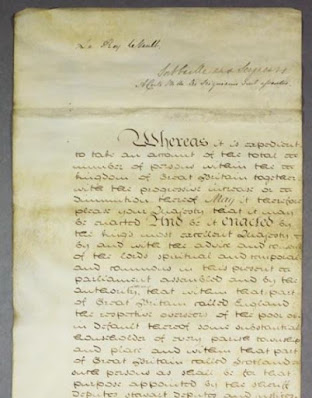The minefield of Trials and Errors
Most families seem to have a "black sheep" who ended up in court for some reason! I know I certainly have plenty. From court marshals in WW1 to neglectful parents. It brings up the vexed question of whether the family want to know about them - and whether you want to know. A good scandal can liven up your family history, but how do you get the
dirt without upsetting your relatives?
Family secrets can change over time, for example a child out of wedlock in the 1800's would have been a scandal but in 2016 - no big deal. One of my great uncle's was court-martialed in WW1 - at the time it would have been shameful, but these days we have more understanding and awareness of what went on, and so I don't find it shameful at all, just sad. Of course if you are Australian and you have a convict in the family well that's just Aussie royalty! In the end, you may have to make up your own mind about what you tell others in the family, and document some things for your eyes only.
Of course, you may find that your ancestor was the victim in a crime, not the criminal, but that can also be upsetting. A case in point - Little Mary Stettler, aged 10, and raped by her father's worker. Now that is not something I personally am going to advertise to the family, but just keep to myself.
I found this little piece of information on a website recently, it just goes to show how prevalent the skeleton in the closet really is.
So proceed with caution, lets continue the getting started series and find out where the court records are located.
To see all the court records links in one place, just click here go to our Pinterest site.
What can you find?
Don't limit yourself to finding just trial proceedings, remember you may find other information among court records
- Bankruptcy
- Inquests into deaths
- Land disputes
- Wills
- Probate
- Divorce
- Adoption
- Citizenship
Start with the oldest Australian court records - for the convicts.
Check and read the guide to searching for the Old Baily Records from 1674 - 1913. They are fascinating, and sometimes hard to read - take a look at this one:
Fortunately, a transcript is also included (note the old English usage):
Ancestry has an extended convict section, including the England and Wales Criminal for the years 1791-1892.
"The criminal registers are a listing of individuals charged with crime.
The registers provide information about the charged individual, their
trial, and sentence (if convicted) or other outcome." You will also find some records on Find my Past.
The State library of Queensland has the Convict transportation registers database
compiled
from the British Home Office (HO) records which are available on
microfilm at all Australian State Libraries, its a good starting point. The NSW STATE LIBRARY has a range of resources, from British newspapers from the 1600's to Police Gazettes.
Ireland
If a convict was Irish, the State Paper Office in Dublin should be consulted to see if convicts
appealed against their sentence. It generally appears that early Irish trial records were burnt
during the Irish Civil War in 1922 and it's now a matter of searching through the newspapers of
the day for specific trial details.
Scotland
For information about transported Scotts, start with the National Records of Scotland and use the State library of Queensland link above.
In Australia
You may want to start by understanding the relevant Australian court jurisdictions, and for this start with Wikipedia.
The other resource you will find useful is the Australasian Legal Information Institute,
A joint facility of UTS and UNSW Faculties of Law, and contains judgements from all jurisdictions of Australian Law.
Most trials will be found using the relevant State Archives and State Libraries, and most have guides, the links are below:
Warning! - Some states make it quite hard to get information.
Most court marshal records are held at the National Archives and you can search a persons name or read individual fact sheets for each war. (eg WW1).
For Wills, try this great guide to where all the records are, most old wills are held in the State Records Offices, some on microfilm, some indexed, some not! Good luck!
Some records will be sealed and so not available, (particularly for juveniles) some will need a written request and you may have to prove you are Senior next of kin and/or have a legitimate reason for receiving the information. This tends to apply for sensitive information.
Newspapers & Police Gazettes.
In Australia, newspapers are a great source of information about old court cases, and may actually be where you find out that someone was involved in a trial. To search Australian newspapers use TROVE, and for a guide to using Trove, download my free booklet.
In newspapers you may find full transcripts of trials, including the names of witnesses. You may also find public notices of probate, bankruptcy, and notices related to divorce.
Police Gazettes contain early colonial information about criminals, crimes and suspects and can be found on TROVE, Find my Past and State Archive offices. Here is one I found that was interesting:
One of my ancestors jumped ship in Sydney, in his description it says "sailor type" - I wonder just what that meant?
Many court records are not online in Australia, and you may need to go to the court archives to find them. TROVE is often the first point of information, as court cases were extensively reported in local papers.
Good hunting!
---------------------






Comments
Post a Comment
Thank you for your comment on my Blog. I love to get feedback and information to share from my readers.
To keep up to date simply follow me on facebook or subscribe using the button at the top of the blog page.
Barb